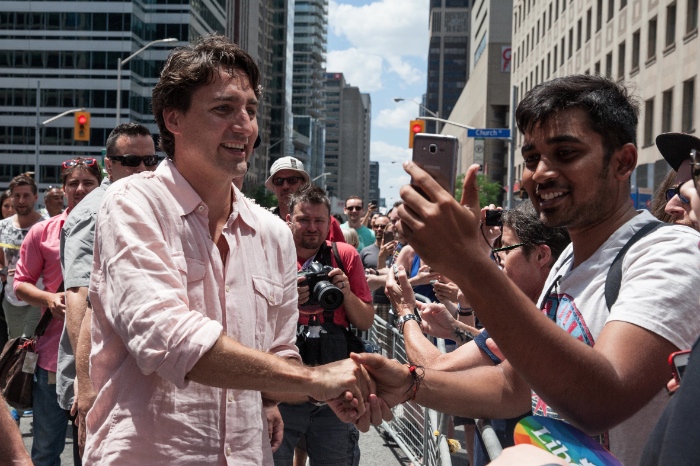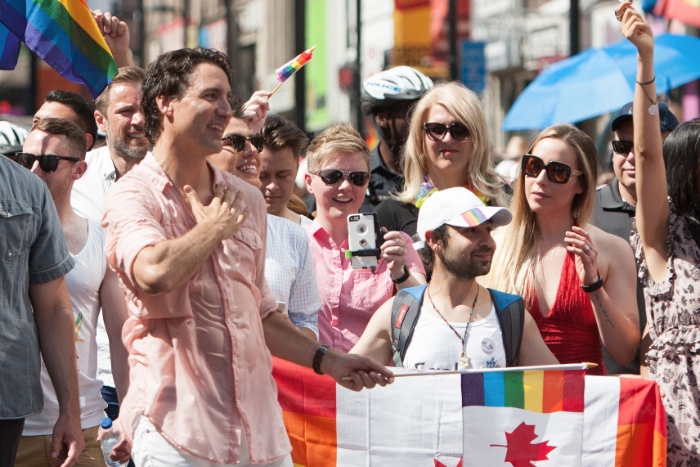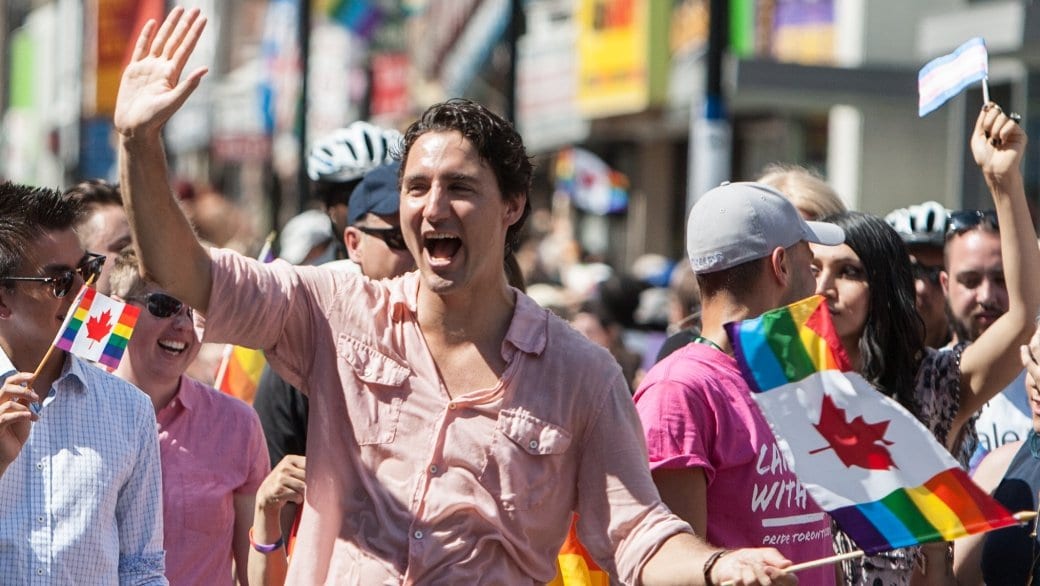Justin Trudeau made history by becoming the first Canadian prime minister to march in a Pride parade, July 3, 2016.
Trudeau began the day by attending a church service on Church Street led by Brent Hawkes, senior pastor of Metropolitan Community Church.
Flanked by Ontario Premier Kathleen Wynne and Toronto Mayor John Tory, Trudeau marched near the front of the parade and was received with rapturous applause at every turn.

(Nick Lachance/Daily Xtra)
When the parade came to a halt because of Black Lives Matter Toronto’s protest, Trudeau used the opportunity to shake hands and take selfies with the public.

(Nick Lachance/Daily Xtra)
As the parade proceeded, Trudeau’s pink button-up was soaked from the many water guns directed at the prime minister.

(Nick Lachance/Daily Xtra)
Though Trudeau is not the first world leader to march in a Pride parade — former Danish Prime Minister Helle Thorning-Schmidt marched in Copenhagen’s parade in 2012 — he is one of the first.
A week before the parade, Trudeau sat down with Daily Xtra to talk about LGBT issues, including the Pride parade.
“We recognize that it’s not just me going to the parade yet again,” he said. “The community and Canadians put in place a prime minister who understood how important it is to attend Pride. And that’s something to celebrate — it’s a milestone.”

 Why you can trust Xtra
Why you can trust Xtra


